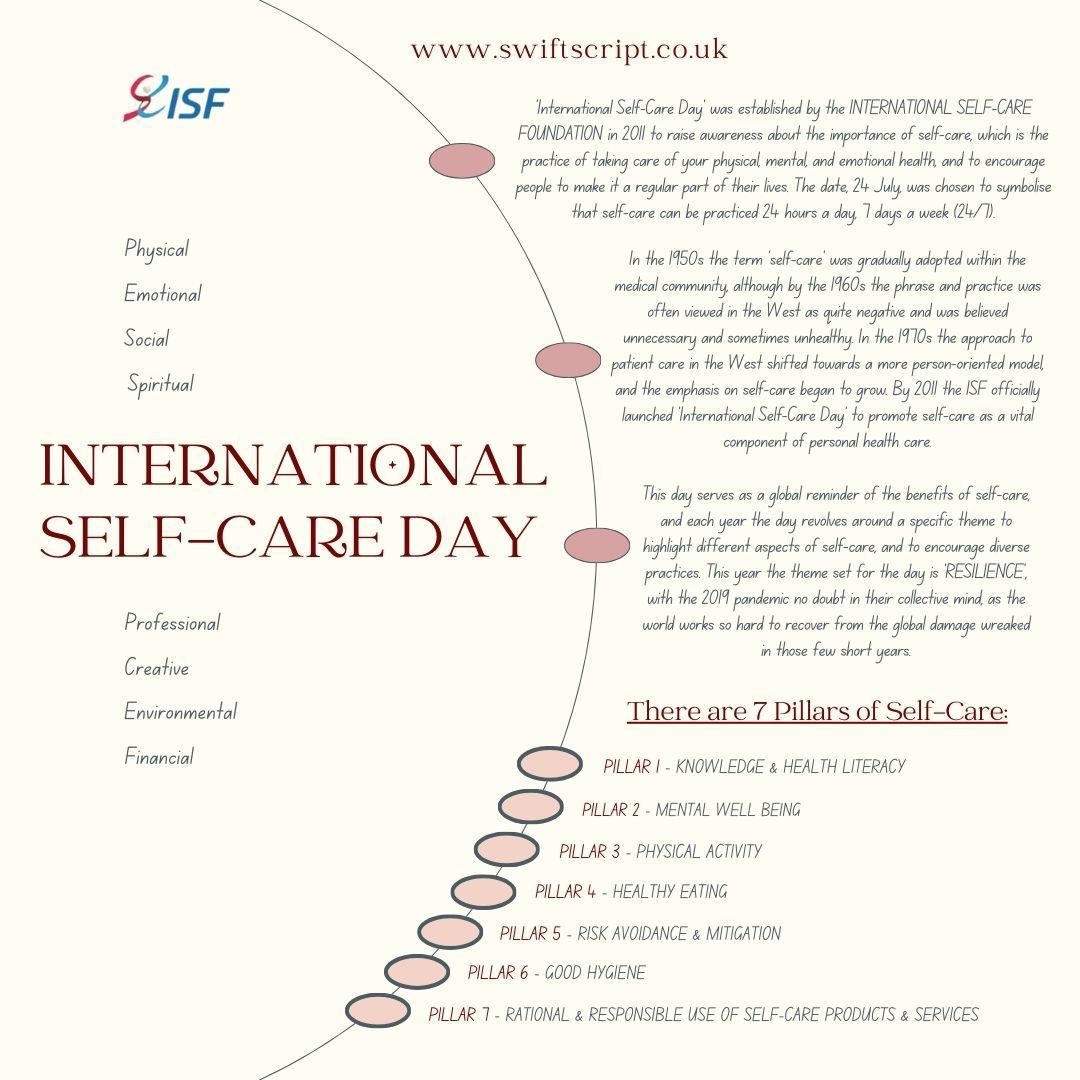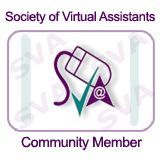International Self-Care Day - 24th July 2024

The Key aspects of self-care and some effective mindfulness techniques that will boost your resilience:
Professional
- Work-Life Balance. Ensuring a healthy balance between your work and personal life can help to prevent exhaustion and instead promote
inner peace and comfortable self-reflection.
- Ensure you take regular breaks during work to rest and recharge. Step away from your desk for a few minutes every hour. Stretch, walk
around every hour, simply take a few deep breaths, or follow the Pomodoro Technique (25 minutes of work followed by a 5-minute break).
This helps to reduce mental fatigue, can boost your mood, and improve focus and productivity.
- Exercise Regularly. Aim for at least 30 minutes of physical activity most days of the week, which could be anything from a brisk walk to a yoga session.
Financial
- Create and stick to a budget to manage your finances effectively, setting aside savings for future needs and emergencies.
Environmental
- Declutter. Keep your living and working spaces clean and organised to reduce stress and increase productivity.
- Create a relaxing space and designate a space in your home where you can relax and unwind.
Physical
- Incorporate physical activity into your day, such as a morning workout, a lunchtime walk or stretching exercises. Physical activity boosts mood and reduces stress.
- Get a good sleep. Getting enough quality sleep is crucial for physical and mental health. Do your best to ensure you get 7-9 hours of quality sleep each night by creating a relaxing bedtime routine and keeping a consistent sleep schedule.
- Eat mindfully, focus on a balanced diet rich in fruits, vegetables, lean proteins, and whole grains, and stay hydrated by drinking plenty of water. Eating a well balanced diet rich in nutrients supports overall well-being.
Connection
- Maintaining supportive and healthy relationships and spending time with friends and family is important for emotional well-being.
Emotions and Boundaries
- Finding healthy ways to express your emotions, such as through journaling or talking to a trusted person, can help manage stress. Learn to say no and set boundaries to protect your time and energy.
- Aromatherapy. Use essential oils like lavender or chamomile in a diffuser or apply a few drops to your wrists. Certain scents can promote relaxation and reduce stress.
Reflection, Meditation and Prayer
- Engage in spiritual practices that resonate with you, such as meditation, prayer, or spending time in nature, can be grounding.
- Read inspirational material, books, articles, or listen to podcasts that inspire and uplift you, even a few minutes a day can make a difference.
- Download a mindfulness app for guided meditation, which can reduce stress and increase clarity and calmness.
- Taking time for self-reflection and connecting with your values and beliefs can provide a sense of purpose.
Breathing
- Sit or lie down in a comfortable position. Take a deep breath in through your nose, hold it for a few seconds, and then slowly exhale through
your mouth. Repeat this several times. This helps calm your mind and body by reducing the stress hormone cortisol.
Guided Imagery
- Close your eyes and imagine yourself in a peaceful place, like a beach or a forest. Focus on the details, on what you see, hear, and feel. This provides a mental escape and can quickly reduce stress levels. Apps like Headspace or Calm can be helpful, they reduce stress and enhance focus and clarity.
Laughter
- Watch a funny video or think of something that makes you laugh, this releases endorphins, which can improve your mood and reduce stress.
Reflections
All Rights Reserved | Swiftscript




